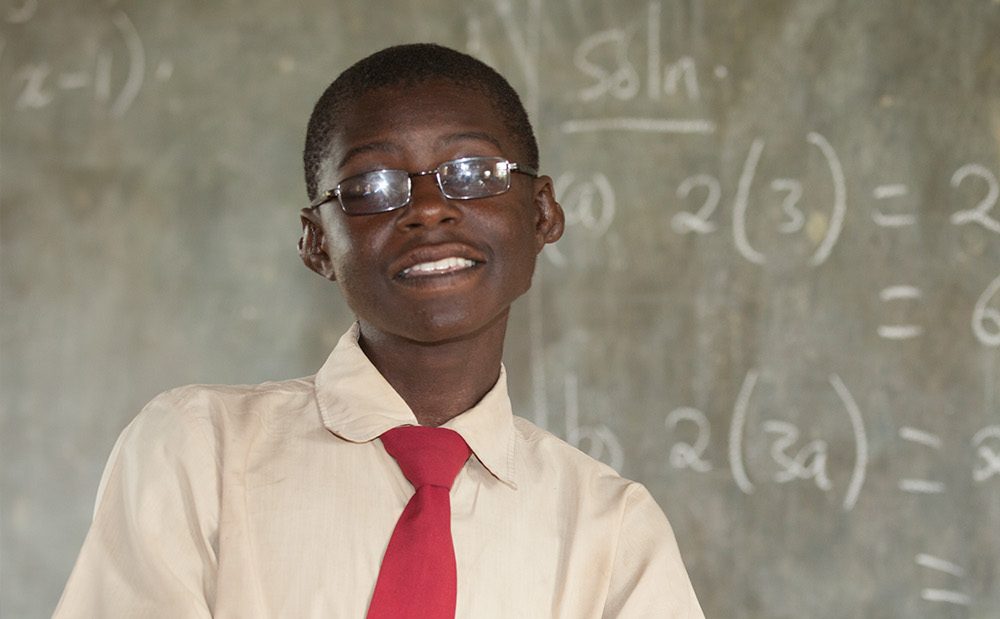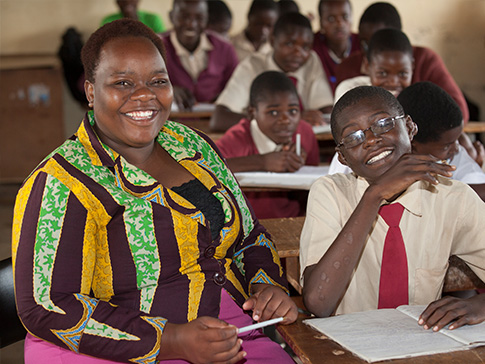Secondary Scholar, Zimbabwe

Tafadzwa
Tafadzwa is the youngest of six children. His parents work on a farm in exchange for accommodation, and his home is 7 km away from school. His two-hour walk to school starts at 6 a.m. After an illness, Tafadzwa developed a painful eye condition. His declining eyesight, combined with his parents’ lack of funds for school fees and medical treatment, forced him to drop out of school a year later.
Tafadzwa’s disability not only prevented him from going to school, but also from continuing the activities that he loved, such as playing football.
CAMFED stepped in so that Tafadzwa could continue his education. Tafadzwa is one of a number of boys and girls CAMFED supports through a partnership with the UK government’s Department for International Development (DFID) in Zimbabwe, where additional resources are focused on enabling students with disabilities to transition from primary to secondary school and to sit their end-of-school exams.
CAMFED arranged for Tafadzwa to meet with a specialist to receive special glasses and medication that prevents the sun from hurting his eyes. With CAMFED support he is now able to attend school regularly, and reignite his dreams.

Tafadzwa with his Teacher Mentor, Evidence. (Photo: Jon Pilch/CAMFED)
When Tafadzwa was selected to receive support from CAMFED, he was very encouraged by seeing that there were many people who were concerned about him. He started coming to school and his attendance at school is now regular. His eyesight also improved with the glasses he received.
Evidence, Tafadzwa’s Teacher Mentor
Many schools and teachers in disadvantaged rural areas do not have the resources, training or equipment to work with disabled children. CAMFED works with Teacher Mentors, schools and communities to support the education of children with disabilities. We cover the costs of specialists, operations (if necessary), medication and assistive devices, such as glasses or hearing aids.
Now that he is back in school, Tafadzwa hopes to become a doctor one day and have the financial security and independence to improve his life and help support his family.
